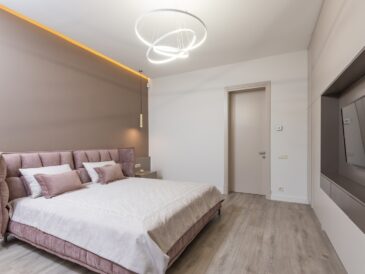Sleep is dependent upon more than just your bedtime routine; your sleeping position can also play an integral part. Any discomforts from pain and aches as well as snoring and sleep apnea could prevent restful restful restful restful REM sleep.
Sleeping supine (flat on your back) is considered to be one of the healthiest sleeping positions, as it helps your spine remain aligned and reduces neck and shoulder pain. Unfortunately, however, this position doesn’t cater well for acid reflux sufferers and can worsen snoring and obstructive apnea symptoms.
Side Sleeper
Though many are committed to their side sleeping habits, this position can come with certain drawbacks. Side sleepers may experience sore necks or backaches due to curled-up bodies at night; furthermore, restricting breath can lead to acid reflux or heartburn symptoms; some find putting a pillow beneath their heads helps ease neck ache.
Sleepers on their side must strive to ensure that their shoulders align with their hips; this can be accomplished by placing a pillow between their knees or beneath their stomach, or alternatively using a wedge pillow as additional head and neck support.
Sleepers who tuck their arm behind their head may restrict blood flow and put pressure on nerves, resulting in painful pins-and-needles known as rubber arm syndrome. Sleepers with this habit should tuck a pillow or blanket underneath their elbow to help stop this from occurring; pregnant women should try not to doze this way as it could reduce circulation to their fetus while increasing abdominal pressure and organ strain.
As such, side sleepers should use mattresses and pillows designed specifically to support their posture. Products like half-moon bolster pillows and lumbar pillows provide support for hips, shoulders and back while maintaining the natural curve of their spines.
Stomach Sleeper
As their name implies, stomach sleepers prefer laying with their front half pressed against their mattress. Although this position might make falling asleep easier for some people, staying there all night long may cause pain and discomfort for those staying there too long.
Stomach sleeping can worsen acid reflux and increase your risk of snoring or sleep apnea, while it also puts you at a greater risk of herniated discs and neck issues due to twisting your spine during prone sleeping posture.
However, stomach sleepers can improve their sleeping position with some simple adjustments. Start by placing a pillow under each knee to ease hip pressure and prevent excessive twisting in your neck as you sleep this position.
Stomach sleepers require a firm mattress rated between 5 and 7 on the firmness scale to avoid sinking in. Your pillow choice is also crucial; go for thin ones or, better still, try not sleeping with any at all if possible – that will allow your spine to fully relax as your spinal health is being protected while still providing support and relaxation – you may later upgrade to something softer if this habit continues!
Back Sleeper
Back sleeping (also called supine sleeping) is widely considered the optimal position for overall spine health and various physical benefits, including lower back pain relief. Unfortunately, however, this sleeping position may not suit everyone; in particular if they suffer from certain medical conditions like sleep apnea or acid reflux.
Back sleeping can put strain on your neck and shoulder muscles as well as cause backache if your mattress doesn’t support your spine properly. Furthermore, this position shouldn’t be recommended to those with heart conditions as it increases lung pressure.
To avoid this from occurring, select a mattress designed specifically for back sleepers, along with an appropriate pillow. An adjustable base might also come in handy here, allowing you to raise the head of your mattress slightly in order to reduce snoring and acid reflux symptoms while supporting your back.
Readjusting your sleeping position may take some time and patience, especially if you have been doing it for some time. But the rewards could be worth your while: healthier spine, less back and neck pain, improved skin health and decreased snoring/congestion issues. As always, get plenty of rest – the more rested you are, the better off you will feel overall! Good luck and may your journey continue peacefully.




